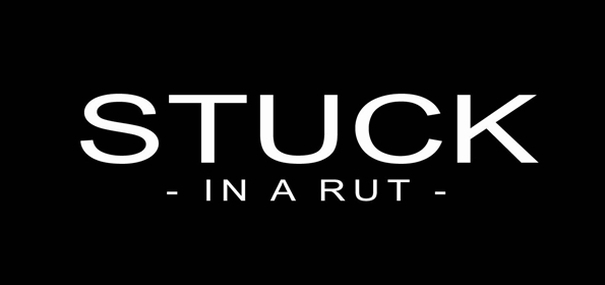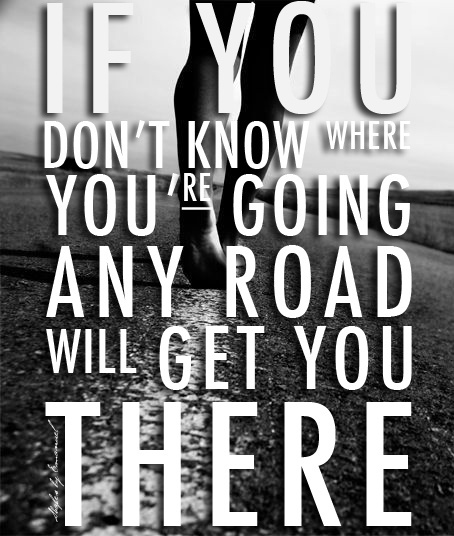To create rather than imitate, to be imaginative, clever, ingenious, innovational, innovative, original, or even Promethean (as in boldly or defiantly creative) requires moving away from your area of familiarity. In its broadest definition, being creative relates to or involves the use of your imagination or original ideas to create something. Sounds simple enough, right? Not so, I appreciate that, still, I venture the opinion that you can perfect your approach to creative thinking in ways you had perhaps not considered.
We all accept that you can’t teach genius. Creativity, however, is more about encouraging everyday creative thinking that can make you or your employees more productive. Most of us suffer from conformity bias but if all we ever did was to conform, we would never grow, says Gerard Puccio, Professor at Buffalo State College in New York who is also of the opinion that creativity is a talent we all posses because we’re human and we have been endowed with imagination at birth and are therefore wired to be creative. Puccio argues that it’s never been more important to arm people with the skills for creative thinking. It’s no longer a luxury. It’s about survival, he says. Industries rise when creativity thrives, and fall when it doesn’t. Puccio chairs the International Center for Studies in Creativity, which was the world’s first university department of its kind, founded on the principles of Alex Osborn, the advertising exec who worked on New York’s Madison Avenue in the mid-20th Century and co-founded BBDO - the inspiration for advertising agency Sterling Cooper in the TV series Mad Men. Osborn popularized the idea of brainstorming when experimenting to provoke creative thinking in his staff. According to Puccio creativity comes in four stages – clarifying, ideating, developing and implementing. Clarifying to ensure you’re asking the right question(s); ideating to explore as many solutions as possible; developing and implementing to make sure an idea is practical and convincing to others. Of the four, ideating most clearly involves creative thinking. The idea, says Puccio, is to force the brain out of a purely analytical state in which it tends to focus on one solution, ignoring all others. A de-focused mind is more likely to make unusual connections that just might suggest new solutions to a problem or challenge.
The idea that certain activities can prime the mind to come up with less obvious solutions than would surface otherwise is supported by scientific research. Psychologists call it divergent thinking. For example, it has been shown that people in a relaxed state are more likely to arrive at creative solutions, which was also the case with an experiment conducted by Amy Harmon, a journalist with The New York Times, who tested whether performing her daily tasks while on/at a treadmill desk improved her cognitive performance. Although, the test proved inconclusive, other studies have shown that people are more likely to solve problems when lying on their backs than when standing upright. Perhaps it’s because our minds wander when we’re relaxed, and that inspires us to consider a range of ideas, rather than getting stumped by limiting thoughts. And this is possibly also why I seem to have my best ideas in the shower, or when doing laundry.
Six suggestions to improve creative thinking:
1. Adjust your mindset
Be willing to adapt your thinking strategies and use available technologies to increase your creativity. Deliberate training and learning will develop creative thinking skills.
2. Go offline
Most weekends I don’t check my email, and I usually don’t open my inbox before 10:00 am on weekdays. I may be offline bar texting and making calls because this is how I organize my professional life but I tend to read more, do chores and other things to steer my brain in a different direction. If you have a boss you may not have this luxury but I assure you offline activities will kindle your creative thinking. Existing and emerging technologies make it easy and tempting to be online 24/7, and I don’t always heed my own advice, but it does improve cognitive performance to remove oneself from the constant bombardment of emails, chats, and information that makes one too dependent on trends, hampering one’s own creativity in the process.
3. Defer judgment
Don’t immediately discard an idea or test it to destruction, suspend judgment. By doing so you may increase your ability to recognize the true merit of an idea. This may sound counter-intuitive because we live in world where we tend to shy away from offering an opinion or putting forth an idea because it may be rejected and/or belittled by our peers - if you present an idea or solution to a problem in a meeting, often times it will be promptly rejected because it ‘won’t work’, or has been ‘tried and proved ineffective’, etc. The degree to which you’re able to engage in flexible thought and deliberately look at a series of ideas without automatically rejecting them, you will train your mind and develop your talent for creative thinking. Keep in mind that independent thinkers and great inventors have gazillion ideas of which only a few will revolutionize the world.
4. Don’t be a perfectionist
Perfectionism will likely stifle your creativity. You may produce superior work, but you'll also keep yourself from experimenting and trying out some not-so-perfect options that could potentially lead to something quite extraordinary. The paths to achieving creative success are infinite. Imperfection is human; don't aim for perfection to the extent that you end up quenching what makes your work unique, or worse still, don’t try at all.
5. Avoid isolation
The best ideas occur in the real world because a lot of ideas emerge when we’re arguing, bickering and collaborating. If you’re running your own business, avail yourself of opportunities to share ideas with other entrepreneurs in your community, partners and/or people in your network. Sparring will ignite your imagination and get your creative juices flowing.
6. Find your passion
Passion drives memory making you far more likely to remember information about something you’re passionate about. You may not experience a net increase in creativity but if you want to make powerful creative leaps you have to give it the old college try. The many technological distractions may have made it more difficult to focus and not be overly influenced by trends, meanwhile actually creating stuff has become much easier, let that be your guide to go forth and create.
Sources:
Lessons in Creativity by Clive Thompson
Finding the Right Place on a Treadmill Desk by Amy Harmon
Gerard Puccio: Creativity as a Life Skill, TED Talk http://www.youtube.com/watch?v=ltPAsp71rmI
***
We all accept that you can’t teach genius. Creativity, however, is more about encouraging everyday creative thinking that can make you or your employees more productive. Most of us suffer from conformity bias but if all we ever did was to conform, we would never grow, says Gerard Puccio, Professor at Buffalo State College in New York who is also of the opinion that creativity is a talent we all posses because we’re human and we have been endowed with imagination at birth and are therefore wired to be creative. Puccio argues that it’s never been more important to arm people with the skills for creative thinking. It’s no longer a luxury. It’s about survival, he says. Industries rise when creativity thrives, and fall when it doesn’t. Puccio chairs the International Center for Studies in Creativity, which was the world’s first university department of its kind, founded on the principles of Alex Osborn, the advertising exec who worked on New York’s Madison Avenue in the mid-20th Century and co-founded BBDO - the inspiration for advertising agency Sterling Cooper in the TV series Mad Men. Osborn popularized the idea of brainstorming when experimenting to provoke creative thinking in his staff. According to Puccio creativity comes in four stages – clarifying, ideating, developing and implementing. Clarifying to ensure you’re asking the right question(s); ideating to explore as many solutions as possible; developing and implementing to make sure an idea is practical and convincing to others. Of the four, ideating most clearly involves creative thinking. The idea, says Puccio, is to force the brain out of a purely analytical state in which it tends to focus on one solution, ignoring all others. A de-focused mind is more likely to make unusual connections that just might suggest new solutions to a problem or challenge.
The idea that certain activities can prime the mind to come up with less obvious solutions than would surface otherwise is supported by scientific research. Psychologists call it divergent thinking. For example, it has been shown that people in a relaxed state are more likely to arrive at creative solutions, which was also the case with an experiment conducted by Amy Harmon, a journalist with The New York Times, who tested whether performing her daily tasks while on/at a treadmill desk improved her cognitive performance. Although, the test proved inconclusive, other studies have shown that people are more likely to solve problems when lying on their backs than when standing upright. Perhaps it’s because our minds wander when we’re relaxed, and that inspires us to consider a range of ideas, rather than getting stumped by limiting thoughts. And this is possibly also why I seem to have my best ideas in the shower, or when doing laundry.
Six suggestions to improve creative thinking:
1. Adjust your mindset
Be willing to adapt your thinking strategies and use available technologies to increase your creativity. Deliberate training and learning will develop creative thinking skills.
2. Go offline
Most weekends I don’t check my email, and I usually don’t open my inbox before 10:00 am on weekdays. I may be offline bar texting and making calls because this is how I organize my professional life but I tend to read more, do chores and other things to steer my brain in a different direction. If you have a boss you may not have this luxury but I assure you offline activities will kindle your creative thinking. Existing and emerging technologies make it easy and tempting to be online 24/7, and I don’t always heed my own advice, but it does improve cognitive performance to remove oneself from the constant bombardment of emails, chats, and information that makes one too dependent on trends, hampering one’s own creativity in the process.
3. Defer judgment
Don’t immediately discard an idea or test it to destruction, suspend judgment. By doing so you may increase your ability to recognize the true merit of an idea. This may sound counter-intuitive because we live in world where we tend to shy away from offering an opinion or putting forth an idea because it may be rejected and/or belittled by our peers - if you present an idea or solution to a problem in a meeting, often times it will be promptly rejected because it ‘won’t work’, or has been ‘tried and proved ineffective’, etc. The degree to which you’re able to engage in flexible thought and deliberately look at a series of ideas without automatically rejecting them, you will train your mind and develop your talent for creative thinking. Keep in mind that independent thinkers and great inventors have gazillion ideas of which only a few will revolutionize the world.
4. Don’t be a perfectionist
Perfectionism will likely stifle your creativity. You may produce superior work, but you'll also keep yourself from experimenting and trying out some not-so-perfect options that could potentially lead to something quite extraordinary. The paths to achieving creative success are infinite. Imperfection is human; don't aim for perfection to the extent that you end up quenching what makes your work unique, or worse still, don’t try at all.
5. Avoid isolation
The best ideas occur in the real world because a lot of ideas emerge when we’re arguing, bickering and collaborating. If you’re running your own business, avail yourself of opportunities to share ideas with other entrepreneurs in your community, partners and/or people in your network. Sparring will ignite your imagination and get your creative juices flowing.
6. Find your passion
Passion drives memory making you far more likely to remember information about something you’re passionate about. You may not experience a net increase in creativity but if you want to make powerful creative leaps you have to give it the old college try. The many technological distractions may have made it more difficult to focus and not be overly influenced by trends, meanwhile actually creating stuff has become much easier, let that be your guide to go forth and create.
Sources:
Lessons in Creativity by Clive Thompson
Finding the Right Place on a Treadmill Desk by Amy Harmon
Gerard Puccio: Creativity as a Life Skill, TED Talk http://www.youtube.com/watch?v=ltPAsp71rmI
***







 RSS Feed
RSS Feed
